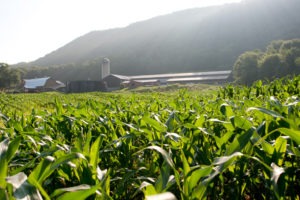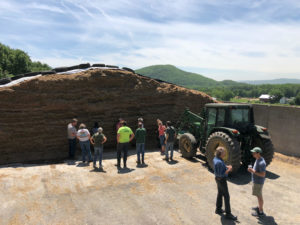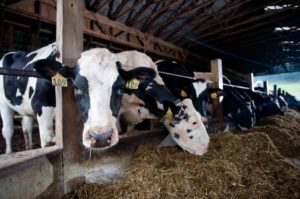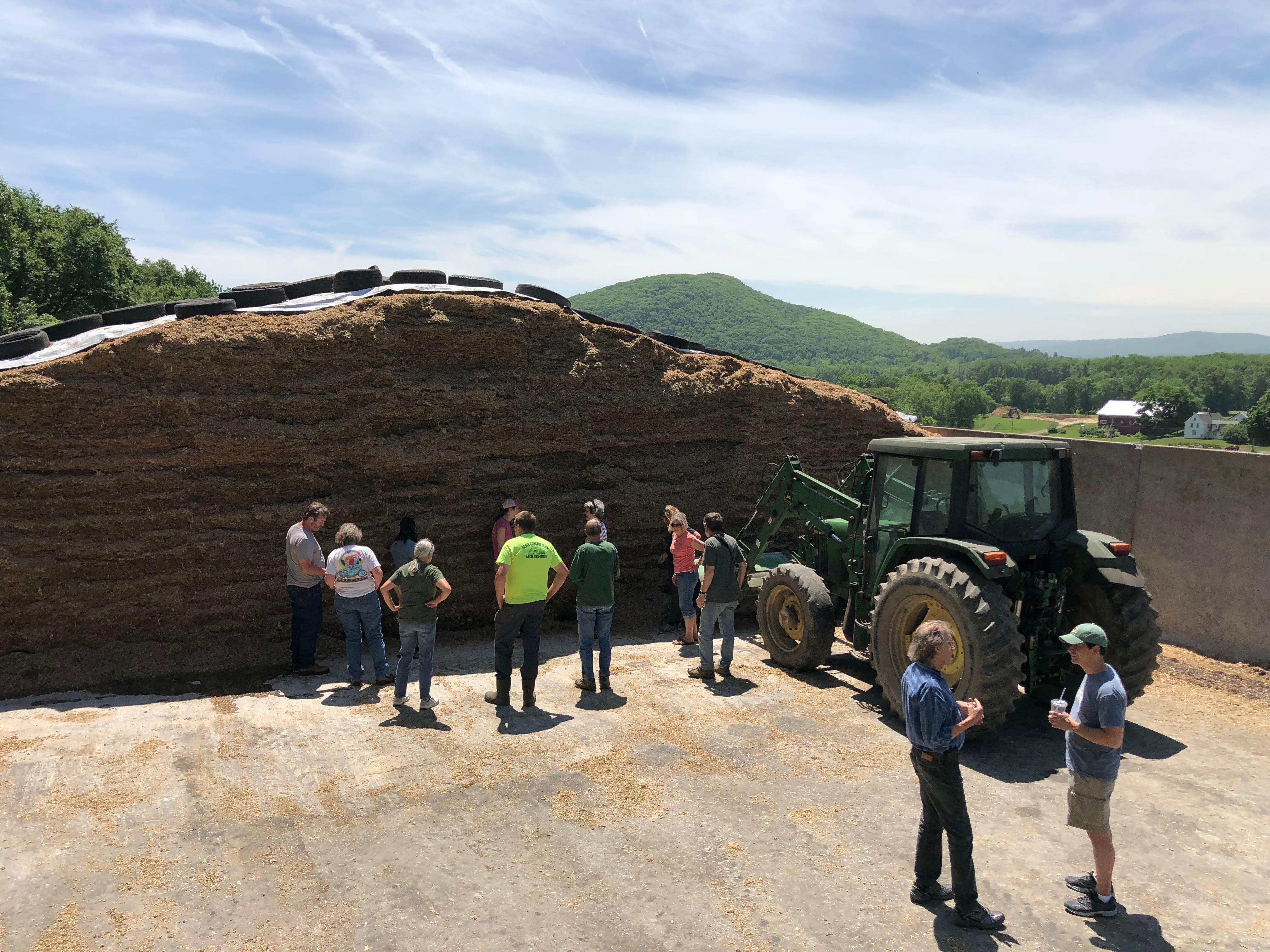Many New England dairy farmers grow their own forage, or cow food, for their herd. That means our cows eat local – and we know everything about our crops from seed to silo.
 At Barstow’s Longview Farm, we raise about 250 acres of corn and 200 acres of hay and alfalfa.
At Barstow’s Longview Farm, we raise about 250 acres of corn and 200 acres of hay and alfalfa.
Instead of sweet corn like people eat (with some salt and Cabot butter), cows and other livestock enjoy field corn. Field corn is also the crop used for corn meal, in processed food, or for ethanol. This crop is tougher and our cows will eat the entire plant, not just the ear of corn. Don’t forget, corn is in the grass family, so it is plenty healthy for our girls to eat.
We plant our corn in early May, before our first cutting of hay, and will harvest it in mid-September into early October.
It is important to harvest at the time the crop is ready, not too late or too early.
 Once the corn is harvested the soil is exposed, we will [plant a cover-crop on these pieces of land. This will reduce soil erosion and keep carbon sequestered in the ground.
Once the corn is harvested the soil is exposed, we will [plant a cover-crop on these pieces of land. This will reduce soil erosion and keep carbon sequestered in the ground.
We practice rotational grazing on parcels of hay and corn land where it makes sense (not too hilly or wet for corn), switching between hay, corn, and alfalfa every four years.
Our hay and corn harvests will last through the winter – allowing us to feed our animals from the land we farm, year round.
The corn is packed tightly in bunker silos, using tractors to push it down, to eliminate oxygen so that the feed doesn’t spoil. The corn will ferment and be called corn silage.
 Once packed, the bunker silo is covered with plastic and tires to promote fermentation and keep the feed dry from the elements.
Once packed, the bunker silo is covered with plastic and tires to promote fermentation and keep the feed dry from the elements.
Each day, we feed haylage and corn silage to our cows. Cows are grouped based on their lactation and time in their life so we can optimize their diets. Keeping their diet consistent will keep their health and milk production consistent. Our girls always have access to food so they can stay healthy and comfortable.
Quality feed is the difference in quality milk.
Caring for our land, soil, and crops is directly linked to animal health, product quality, and our success as a business.
